
Darren Incorvaia is a writer and comedian based in Chicago. His writing has also appeared in Scientific American, Discover Magazine, and Reductress. He has a Ph.D. in ecology, evolution, and behavior from Michigan State University. His favorite animal is all of them.

Trustworthy journalism comes at a price.
Scientists and journalists share a core belief in questioning, observing and verifying to reach the truth. Science News reports on crucial research and discovery across science disciplines. We need your financial support to make it happen – every contribution makes a difference.
All Stories by Darren Incorvaia
-
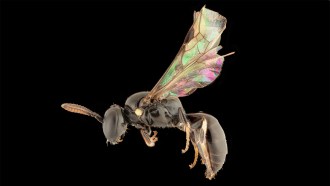 Animals
AnimalsA decades-old mystery has been solved with the help of newfound bee species
Masked bees in Australia and French Polynesia have long-lost relatives in Fiji, suggesting that the bees’ ancestors island hopped.
-
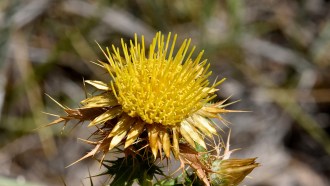 Plants
PlantsOn hot summer days, this thistle is somehow cool to the touch
In hot Spanish summers, the thistle Carlina corymbosa is somehow able to cool itself substantially below air temperature.
-
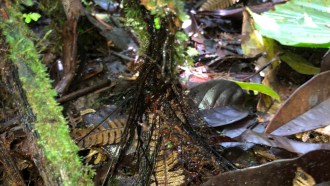 Plants
PlantsThis weird fern is the first known plant that turns its dead leaves into new roots
Cyathea rojasiana tree ferns seem to thrive in Panama’s Quebrada Chorro forest by turning dead leaves into roots that seek out nutrient-rich soil.
-
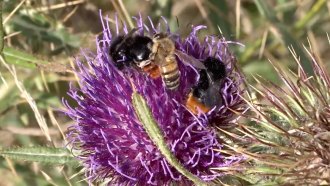 Life
LifeSome honeybees in Italy regularly steal pollen off the backs of bumblebees
New observations suggest that honeybees stealing pollen from bumblebees may be a crime of opportunity, though documentation of it remains rare.
-
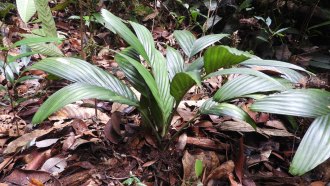 Plants
PlantsThis first-of-its-kind palm plant flowers and fruits entirely underground
Though rare, plants across 33 families are known for subterranean flowering or fruiting. This is the first example in a palm.
-
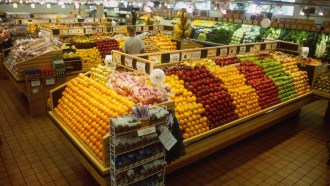 Physics
PhysicsHere’s how much fruit you can take from a display before it collapses
About 10 percent of the fruit in a tilted market display can be removed before it all crashes down, computer simulations show.
-
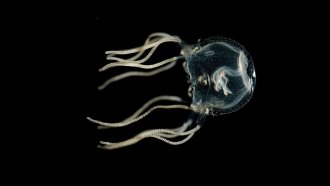 Animals
AnimalsThese are our favorite animal stories of 2023
Spiders that make prey walk the plank, self-aware fish and a pouty T. rex are among the critters that enchanted the Science News staff.
-
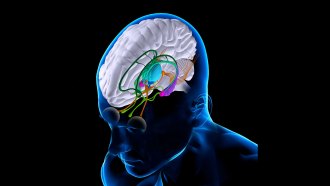 Neuroscience
NeuroscienceElectrical brain implants may help patients with severe brain injuries
After deep brain stimulation, five patients with severe brain injuries improved their scores on a test of cognitive function.
-
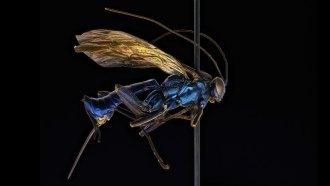 Animals
AnimalsOne mountain in Brazil is home to a surprising number of these parasitic wasps
Darwin wasps were thought to prefer temperate areas. But researchers scoured a mountain in the Brazilian tropics and found nearly a hundred species.
-
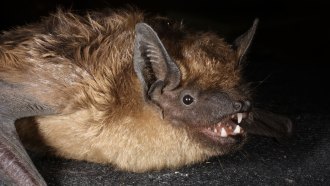 Animals
AnimalsThese bats are the only mammals known to mate more like birds
Male serotine bats have penises too large for penetration. To mate, the animals rub their genitals against each other, somewhat like birds’ cloacal kiss.
-
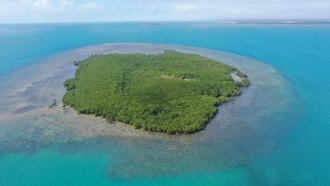 Plants
PlantsOn some Australian islands, sea level rise may be helping mangroves thrive
Rising seas usually spell trouble for mangroves. But the first survey of the Howick Islands in 50 years finds that mangroves there have expanded a lot.
-
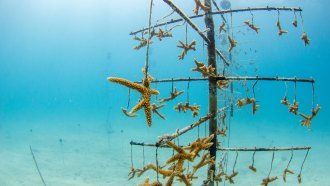 Animals
AnimalsFake fog, ‘re-skinning’ and ‘sea-weeding’ could help coral reefs survive
Coral reefs are in global peril, but scientists around the world are working hard to find ways to help them survive the Anthropocene.